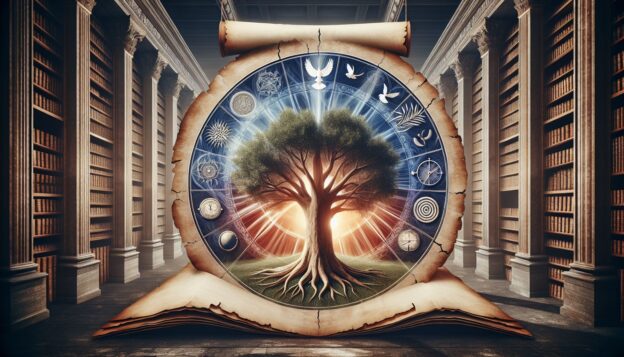In a world that seems in a constant state of flux, where traditional values often collide with new-age ideologies, it’s pivotal to have a steadfast compass to navigate the societal seas. That compass, for many who’ve found solace in the everlasting principles of order, liberty, and prosperity, is conservatism.
Let’s delve into a chapter from our rich political tapestry that resonates with the ethos of the conservative movement — the revered era of the Reagan Presidency. Ronald Reagan, a paragon of conservative leadership, championed an ideology that prioritized small government, strong national defense, and the unshaken belief in the American Dream. His tenets were simple: every individual is the artisan of their fate, and the state should be the facilitator, not the constructor, of this destiny.
An ardent critic of the welfare state, Reagan advanced the notion that government’s overreach undermines the industrious spirit that propels societies forward. He advocated for tax reductions, deregulation, and a focus on personal responsibility—pillars that transformed the economic landscape of the 1980s. The result was an unprecedented period of growth and the reversal of the economic stagnation preceding his tenure, a reality famously dubbed “Reaganomics.”
Fast forward to our contemporary age, and the fiscal responsibility that was once Reagan’s clarion call is now more urgent than ever. In an era of soaring national debt and complex, expansive bureaucracy, conservatives are echoing the principles of the past to guide the future. By limiting the size of government, fostering a competitive free market, and promoting responsible fiscal policies, we nurture a fertile ground for innovation and opportunity.
But conservatism isn’t solely an economic doctrine. At its core, it’s about preserving the cultural and moral framework that has underpinned Western civilization. Traditional family values, religious freedom, and the sanctity of life stand as the bedrock upon which our society thrives. Amidst the mire of modern relativism, it’s these steadfast principles that guide the moral compass of our nation.
An impeccable role model whose life resonated with such values was Winston Churchill, a stalwart defender of Western democracy and freedom. Amidst the darkest hours of World War II, it was Churchill’s unwavering principles, rooted in Judeo-Christian ethics and classical liberal thought, that inspired a beleaguered Britain to stand firm against the tide of fascism. His leadership wasn’t just about strategy and rhetoric; it was a testament to the enduring power of conservative values in the face of tyranny and oppression.
On the topic of strong national defense, a critical pillar of conservatism, the lessons of history are clear. When we look at the rise and fall of great civilizations, a common denominator in their demise is often a weakened defense and a loss of will to protect borders and maintain sovereignty. In today’s geopolitical climate, the conservative emphasis on a robust military and a vigilant approach to foreign policy is not fear-mongering—as some would contend—but a prudent insurance policy against the chaotic and often hostile international arena.
Understanding individual liberty is another enduring element of the conservative ethos. The Founding Fathers of the United States encoded this into the Constitution, ensuring rights that were not granted by government but recognized as inherent. This revolutionary idea has since been the lodestar for free people around the world. And yet, this liberty is neither license nor anarchy. It is, as our founders envisioned, ordered liberty—rights balanced by duties, freedom linked to moral virtue.
Furthermore, the conservative commitment to the sanctity of life, affirming that each individual has intrinsic value and worth, continues to be at the forefront of modern policy debates. Advocating for policies that protect life at all stages, from conception to natural death, remains a testament to the moral fiber woven into the conservative philosophy.
So, to the new generations coming of age in a world rife with conflicting messages and evolving norms, I say, look back to move forward. The so-called ‘progressive’ policies that promise instant gratification and utopian outcomes often forget the lessons learned from historical missteps. True progress is built upon the tried and true—principles that have stood the test of time.
In conclusion, the conservative movement isn’t a relic of the past; it’s a blueprint for a sustainable future. The values we hold dear—fiscal responsibility, strong defense, respect for life, and the primacy of individual liberty—are not outdated dogmas, but guiding stars in an ever-changing political cosmos. By embracing our historical roots, we set a course for a robust future, one that holds true to the values that have served as the pillars of civilization and the engines of prosperity. It is this commitment to a lasting framework, a framework that transcends the political ebbs and flows, that will ensure the torch of liberty continues to burn bright for generations to come.
